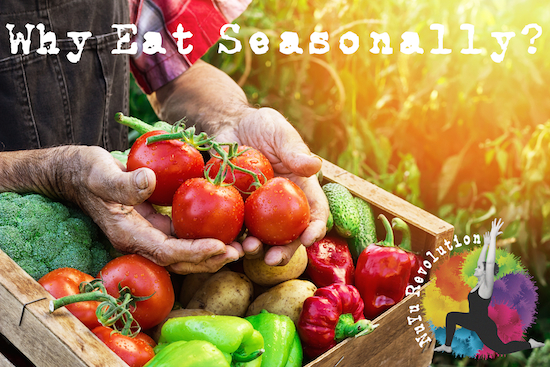By Susan Rappaport
It’s springtime… and in a little over a week, it will be summer! Many of us have our go-to foods that we habitually choose to eat through the year, but our body’s nutritional needs do, in fact, change along with the seasons.
If we eat seasonally, consuming fruits and vegetables that nature has given us at that precise time, the result is said to be that we will feel better, more youthful, and have a stronger immune system.
Though it may seem to be a trend, eating seasonally isn’t a new idea. Before worldwide transport was as swift and routine as it is today, eating seasonally and locally was just what everyone did. No one assumed you could get watermelon during winter, or chestnuts in the summer… and just because we are now able to… it doesn’t mean we should always do so.
Making food selections based on a spring, summer, fall, winter cycle, is believed to help keep the body in balance to avoid illness. In the nutritional philosophies of Ayurvedic medicine, which is an ancient Hindu system of healing, it says that imbalance causes disease. In Sanskrit, the word “Ayurveda” means the “science of life.” The primary goal of Ayurvedic medicine is to support long, healthy and balanced lives.
Nature gives us what we need when we need it, so being mindful and selecting fresh and local fruits and vegetables is always a good choice. Seasonal food is fresher, tastier and more nutritious than food consumed out of season. Plus, it is less expensive, and supports the environment.
Foods grown closer to where we live are harvested at the peak of freshness, and are not forced to undergo unnatural preserving processes. A recent study found that direct-to-consumer producers used less pesticides and herbicides than conventional producers. Eating locally also exposes us to many options we may not otherwise eat, which is good for our health by adding a variety of nutrients to our diets and enhances our ability to combat illness.
In the spring, our bodies naturally want to shed the extra pounds many of us put on over winter. The spring harvest supports us by bringing us bitter greens such as arugula as well as asparagus, and many grains, such as farro and couscous. Many of these foods help us detoxify our liver from the fats and heavier foods we ate all winter, making us feel lighter and more energetic.
In the summer, we are extra active, spend more time outdoors and have more hours of daylight. Natural carbohydrates found in summer fruits and vegetables such as corn, peaches, melon, and berries can help to keep us sustained. As the temperatures rise, we also perspire more and require additional hydration. Drinking extra water, as well as eating liquid-rich foods such as watermelon, cucumbers, tomatoes and green leafy lettuce, such as romaine, can help us endure.
As the cool air of fall moves in, our bodies start to crave fewer raw salads and more cooked, warming foods such as soups, stews, meats, nuts and avocados. An abundance of apples, which are high in fiber and pectin are available to help cleanse the intestines and support digestion, specifically the digestion of fat.
In winter the air becomes dry and cold, so we need foods that are higher in fats and protein such as meats and nuts. The cold and wind can dry out our skin, sinuses, throat and our hair. To counteract the drying effects of winter, a high-protein, high-fat diet of oily foods that help replenish our depleted moisture reserves is a wise choice. Avocados, beets, winter squash, nuts, meat, deep-sea fish and olive oil all aid in keeping our bodies warm, moist and nourished.
Like any diet change undertaking, don’t go crazy with it! There are great benefits, but if it becomes your law, you may lose sight of the benefits. If your doctor recommends that you eat more leafy greens, and kale or collards are out of season but available in your store, don’t pass them up just to “eat seasonally.” Being mindful of seasonal eating gives you a whole new perspective and puts you on a path of awareness. Do what you can, when you can, and the winds of seasonal change will likely blow you in the direction of all around better health, which is a welcome byproduct all year round!
Susan Rappaport is the founder of NuYu Revolution. NuYu is a thoughtful and compassionate exercise studio designed to build solid foundations for a healthy, ongoing relationship with fitness. Organic growth, realistic goals and easefulness keep members committed. The class-only experiences educate students in correct posture, alignment and breathing above intensity, preserving the musculoskeletal system. Offerings include Yoga, Mat Pilates, Posture Cycle®, Spine Align, and Mindful Strengthening, at beginner, intermediate and advanced levels.
The new, stylish 2,500 sq. ft. studio is located on 100th & Broadway
Visit our website: www.nuyurevolution.com
Contact, Susan@NuYuRevolution.com or call (212) 663-1114 to receive information on the Grand Opening promotional offer, available now through June 21st.








